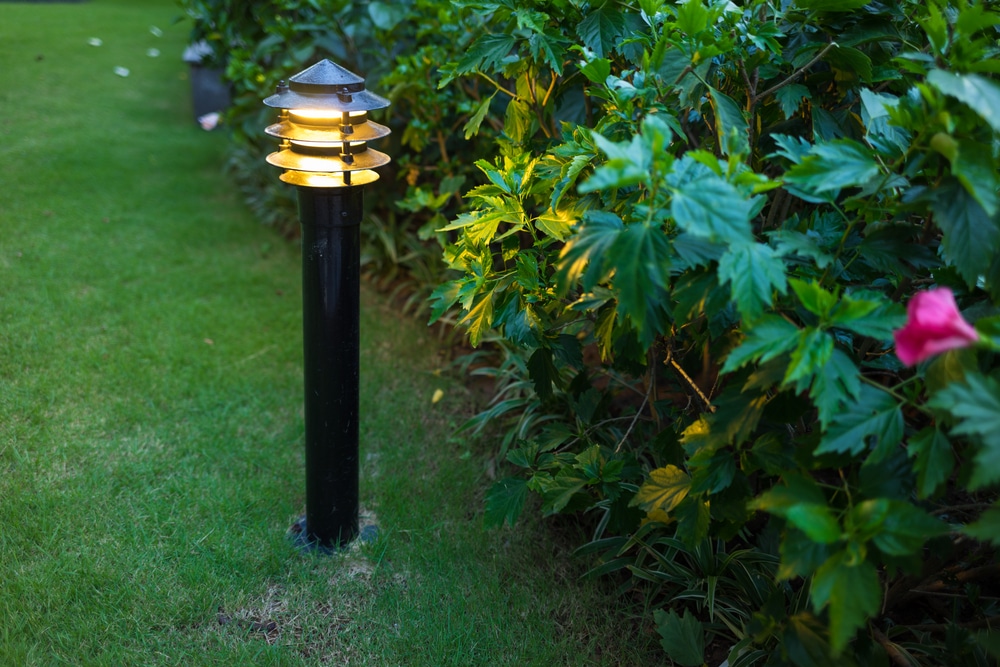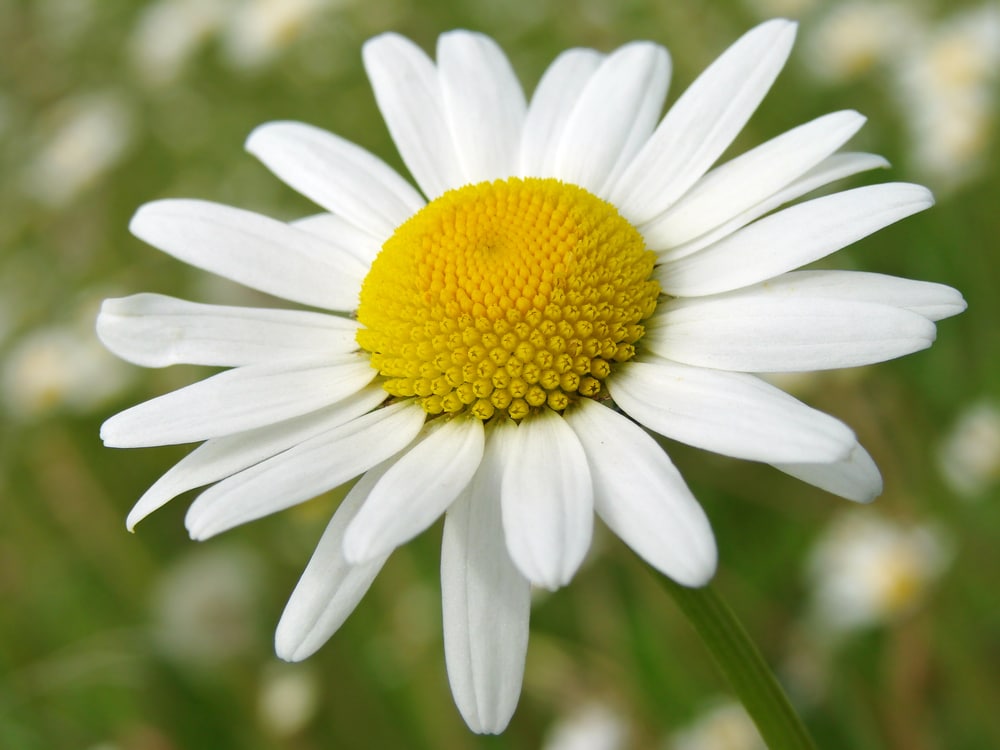Last Updated on
Solar lights are fantastic lighting products for your outdoor area and garden. You can use these renewable lighting products to add a dash of style to your beautiful home.
Also, they serve as a viable lighting solution and a protective device for your home. But how long do solar lights last? This is a common question and essential to understanding if you want to invest in solar lights for your garden. We take a look at this question below and provide some useful tips too!
How Long Do Solar Lights Last – The Different Components
When looking at how long solar lights last, you have to consider the different components of the solar lights. These are complex devices and have several essential components that can affect power, lighting, and lifespan.
Solar Lighting Batteries
This type of light generally uses rechargeable batteries. The panels absorb sunlight which is then converted into energy. This energy is transferred into the battery unit and thus gives the lighting its power.
Generally, these batteries can last for a maximum of four years. However, how long they last depend on the other components and how you look after your lights! It is advisable to store some replacement batteries in your home if the ones currently installed are not charged.
Solar Panels
As mentioned above, solar panels are not what power the lights. Instead, the panels are what charge the battery unit. Regardless, taking care of the panels is important and damaged panels will alter how long your lights last.
Clean the solar panels often. Ensure each panel is clear from obstruction and that they can directly receive sunlight. If the panels are unobstructed, they will absorb sunlight properly and charge the batteries properly.
Light Sensor
The light sensor is another important factor when looking at how long solar lights last. The light sensor detects light levels. If it detects enough sun or illumination, it will automatically turn the LED lights off.
If this sensor is obstructed in any way, it may never turn the lights off. This will mean they remain lit during the night and day. This, in turn, can quickly drain the batteries and significantly reduce the life of your solar lights. Therefore, it is essential to clean the light sensor and make sure it is free from dirt, debris, and shadow to work correctly.
Casing
The glass/plastic casing is one of the most versatile and durable parts of the lights. Therefore, providing that the glass or plastic casing is relatively clean and without damage shouldn’t alter the performance or lifespan of the lights.
LEDs
Most solar lights use LED lights. These are much more effective than halogen lights. Firstly, they are more energy-efficient and cost-efficient. More importantly, they also have a brilliant usage life. It is not uncommon for LED lights to last for up to 30 years. Therefore, providing that the LEDs are not cracked or damaged, they should never cause an issue with longevity.
What Can You Do to Improve the Longevity of Your Solar Lights?
Now that you understand the different components of solar-powered lights, we can look at ways to improve their longevity. Unfortunately, no solar lights last indefinitely. However, there are some simple things you can do for the installation and maintenance that will significantly boost their lifespan:
Have a Stock of Replacement Batteries
Solar panel lights use batteries. These rechargeable batteries are given charge via direct sunlight being converted into energy by the solar panels. Whilst these batteries will not run out, they will still degrade over time and eventually stop working. Also, as they start to degrade, they may become unreliable and cause issues with how the solar lights work.
As a result, it is advisable keeping a stock of batteries for your lights. As noted above, the batteries can last up to 4 years. However, it could still be beneficial to change them every couple of years, or if you start to notice any difference in the performance of the lights.
Clean Your Solar Lights Regularly
Dirty solar lights will directly affect how long the lights last. In addition, these products use electricity and have various fragile components that can easily become damaged. As a result, you must take care of your panels and solar products to work effectively.
We advise cleaning your solar lights once per month as a minimum. This shouldn’t take long.
- Use a damp cloth to wipe the various components
- Dry them off afterwards with a dry cloth.
- The parts you should wipe include the solar panels, the light sensor, the LED lights, and the solar light casing.
If the different components are covered in dirt and debris, they can become damaged. Also, solar lights work worse when they are dirty. For example, if the light sensor is obstructed, the lights may not turn off properly, putting unnecessary strain on the batteries.
Place Your Solar Lights in Areas Free From Clutter
Placement for your solar lights is vital. Solar lights last longer if they are unobstructed and have direct sunlight. Unfortunately, people typically mistake placing their solar lights directly near their house or on a walkway lined by a fence or hedges. Whilst this may look great, it will affect the performance of the solar lights.
For example, if the lights are next to your house, it may cast a shadow on the solar lights and prevent them from charging correctly for most of the day.
Look at your outdoor area when installing your solar light setup. Which areas get the most direct sunlight? Which areas are typically dark and have long shadows? By watching your garden, you can see the best places for daylight and install your solar lights accordingly.
Use the Override Switch to Turn Solar Lights off During Poor Weather
Most solar lights have an override switch. This switch is essentially an on/off switch that overrides the light sensor. To improve the lifespan of your lights and LEDs, consider using the override switch during overcast weather and rain.
During poor weather or the winter, your solar lighting is not as adequate anyway. This is because it may not get sunlight. It needs to charge the batteries correctly for the light sensor to work effectively. Therefore, by turning the lights off manually during the winter or bad weather, you can preserve their power, allowing the batteries to last longer.
Do Not Place Your Solar Lighting Near Artificial Light Sources
Finally, artificial light sources outdoors can significantly affect your solar light setup’s performance, power, and lifespan. By artificial lights, we mean street lights, outdoor spotlights, and any other lighting you have in your outdoor area powered by electricity.
If your solar light posts are placed near other light sources, they may not perform correctly. This is because the other light source gives illumination, which your solar light sensor will detect. As a result, the lights may never turn off. Also, they may never reach full charge, and the batteries could become quickly drained due to over-usage.
Before installing the lights, check for any artificial light sources and make sure they are not casting illumination on your solar lights.
Solar Lights FAQs
There are a lot of questions going around about solar lights. So let’s take a look at some of them below.
Can Solar Lights Work During Winter?
Yes! However, they may not be as effective. During the winter, there are fewer hours of sun. As a result, the lights may not charge properly. It could be prudent to store your lights inside during winter or turn them off.
Can You Leave Solar Lights on All Night?
Yes! Solar lights power during the day, so providing you get enough hours of sun, you can use them all night. However, it could also be beneficial to use a time function to have them turned on for only a specific period. This could help improve their longevity.
Solar Power for Your Home
Solar lights are beneficial to almost any home. They provide excellent lighting while keeping your electricity bills at bay. However, investing in them also means you know how to take care of them. By doing so, you will help increase their lifespan. As with any electrical device, taking care of them ensures they keep lighting up your property for years to come.
After reading this post, hopefully, you have a clear understanding of how long do solar lights last. Do you have other questions about solar lights? Or, do you have other useful tips on how to take care of these lights? We’d love to hear them! Share your thoughts in the comment box below!
Paul is the type of person who never met a problem he couldn’t fix. He can always be found tinkering with something in his house, even if it isn’t broken! His tips and tricks are often shared on our site. He’s the one you call when something breaks because he has been known to improvise fixes for everything from leaky faucets to malfunctioning dryers.




Although solar lights can be used for a long time, the investment cost is really high. I hope the cost will be more suitable in the future.